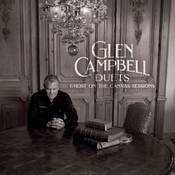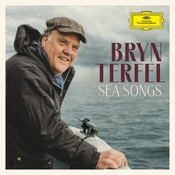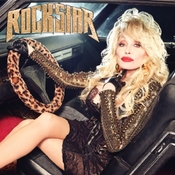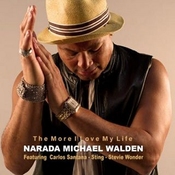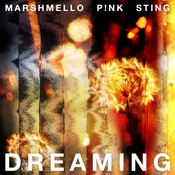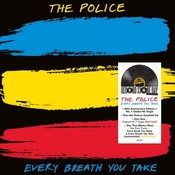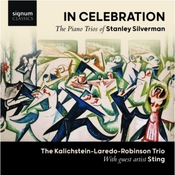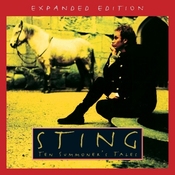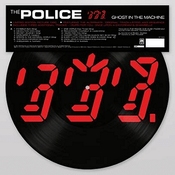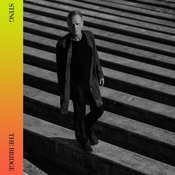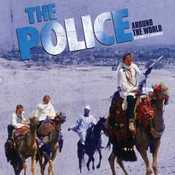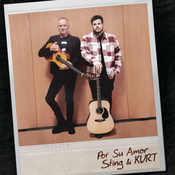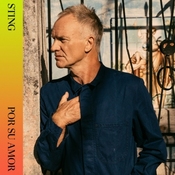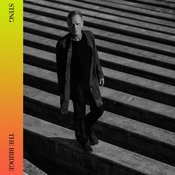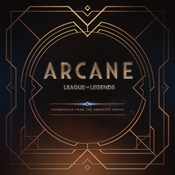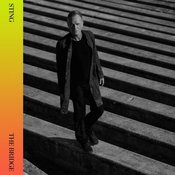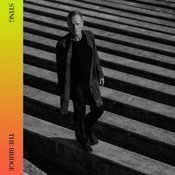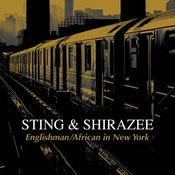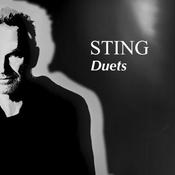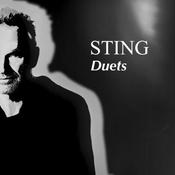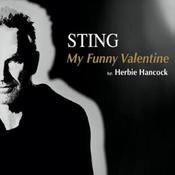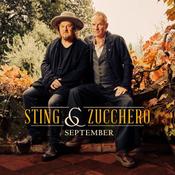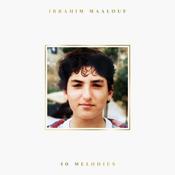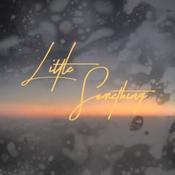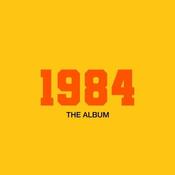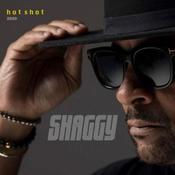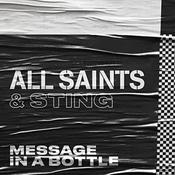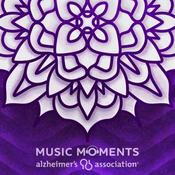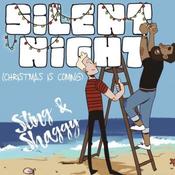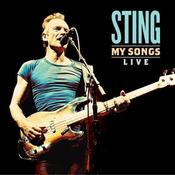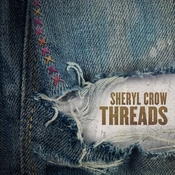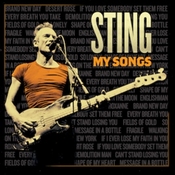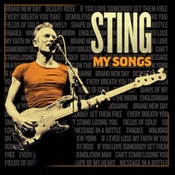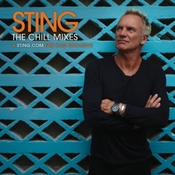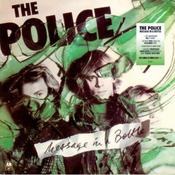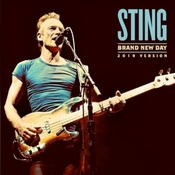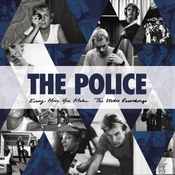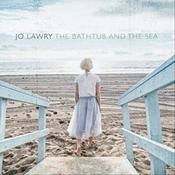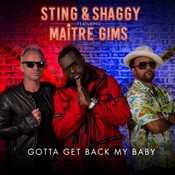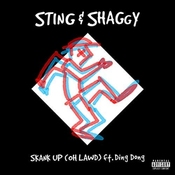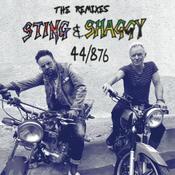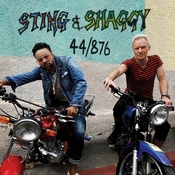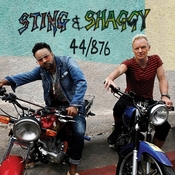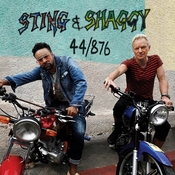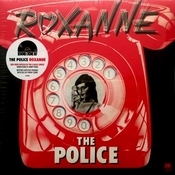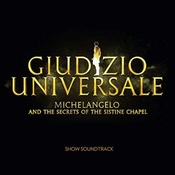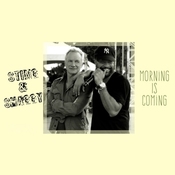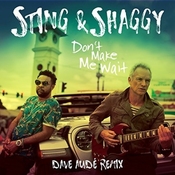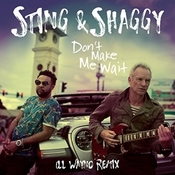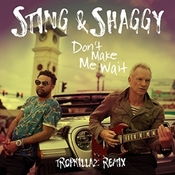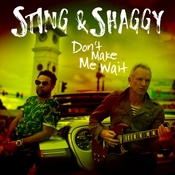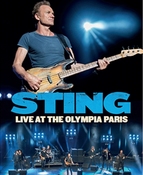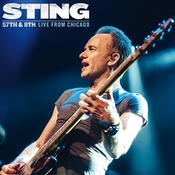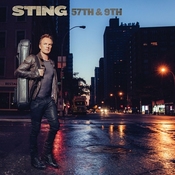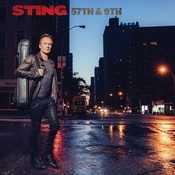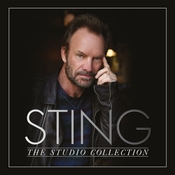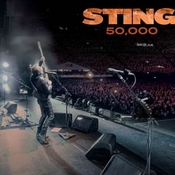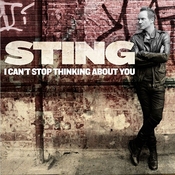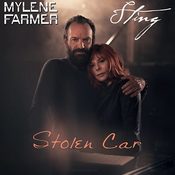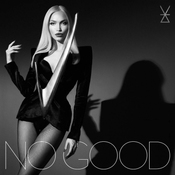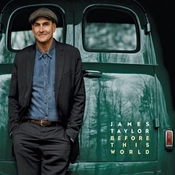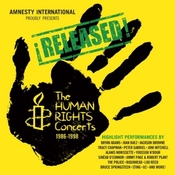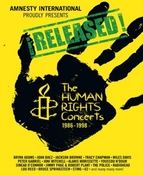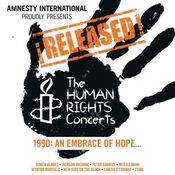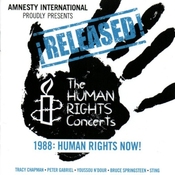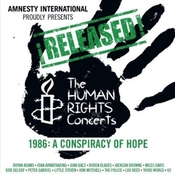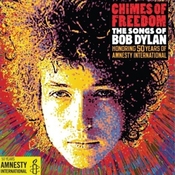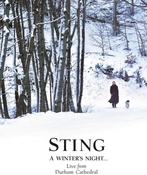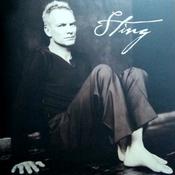Zenyatta Mondatta
- Don't Stand So Close To Me lyrics
- Driven To Tears lyrics
- When The World Is Running Down You Make The Best Of What's Still Around lyrics
- Canary In A Coalmine lyrics
- Voices Inside My Head lyrics
- Bombs Away lyrics
- De Do Do Do, De Da Da Da lyrics
- Behind My Camel lyrics
- Man In A Suitcase lyrics
- Shadows In The Rain lyrics
- The Other Way Of Stopping lyrics

Soundbites
The success of 'Reggatta de Blanc' saw The Police touring at breakneck speed. Early 1980 found them returning to the States for the third time in 12 months before broadening their horizons with trips to Japan, Hong Kong, Australia, Bombay, Eqypt and Europe. Everywhere, it seemed, loved The Police.
It was an exhausted band that finally wrapped up these dates in April 1980 - Sting's voice had finally given up on him and a break was needed. Still, only two short months later, the band reconvened in Hilversum, Holland at the Wisseloord Studios.
In hindsight, the band realised it was too soon, and they were back in the studio for the wrong reasons. Sting said that he felt that "The entire industry was waiting for an album. While I was writing it I was getting messages from the record company saying retailers were waiting for it. I had this impression of thousands of people, cogs in a great system, waiting for this album and I was sitting there struggling. And I got caught up in it, frankly."
Nevertheless, despite these pressures the band delivered an album better than anyone had a right to expect. Nigel Gray returned to produce the album with the band, and Sting delivered two more huge hits in the form of 'Don't Stand So Close To Me' and 'De Do Do Do, De Da Da Da'. Sting's songwriting also demonstrated a widening perspective - he was the first to admit that on the first two albums his songs were rather self centred but songs such as 'Driven To Tears' and 'When The World Is Running Down' showed that Sting was able to write about outside issues too. Indeed, a few years later 'Driven To Tears' would be chosen as one of the songs he played at the global Live Aid concert.
The album was completed on the day that the band set off on another tour and was released in October 1980 and stayed at the top of the UK charts for four weeks. The last word goes to Sting, "Zenyatta was our most flawed record. Surprisingly, that was also the one that made us big."
"I wrote almost all of these songs in the west of Ireland in 1980. We had a house there, in the village of Roundstone near Clifden in Connemara, County Galway - the most westerly point in Europe. The house was situated on an acre of land, with a well-cared-for garden with a long lawn, mature trees, and an artichoke plant, protected from the ocean by a high seawall. The views were spectacular across the bay to the distant mountains. My basement at home in London had no view at all, a few dustbins, and a stairwell, and now, suddenly, this. I worked every day after a bracing walk in the Irish air. When I thought I had enough songs, I drove my VW to Dublin and hired a little studio where I could demo my ditties for presentation to the band."
Sting, 'Lyrics', 10/07
"We're now at an agonising time. We've had a great success with the first album. We've managed to beat the problem of 'the second album'. But now over the next few months we must do the third. We've mastered doing a kind of white reggae and it would be easy to continue in that vein. But we want to do something more than just explore the interface between reggae and rock. Blond reggae won't do, by itself."
Sting, The Observer, 2/80
"There are some songs on the new LP I'm very proud of... the first song on side two, 'De Do Do Do, De Da Da Da', and although it sounds like gibberish, the lyrics actually say something. I'm proud of that song. In a sense I suppose I'm getting better at writing songs. Getting to be more of a craftsman."
Sting, Hot Press, 8/80
"Zenyatta Mondatta was an experiment in commercialism; we buried ourselves in it and it worked. Now we can do what we like, that's the key. We're not saying we're not going to be commercial anymore. We are. But our main concern now is pleasing ourselves."
Sting, NME, 9/81
"When we were making our third album, 'Zenyatta Mondatta', we kept getting phone calls from people in the music industry. We became very aware of the whole commercial industry at this time. This was very profound, very strong pressure. It was the first time we'd really felt it. It was the first time we'd felt it from outside, that is. I mean, obviously, when you make a record, you want it to be a hit. There's been that kind of pressure before. This became different. The industry pressure - you could feel it during conversations with people in the industry. You'd hear about retailers waiting for your album to come out. So you'd be in the middle of making an album and you know about all these people waiting for it - including the record buyers, of course - and you started hoping that people were going to enjoy it. It's a terrible pressure to have. It's not like you are preparing for a concert. It means things aren't simple any more. It's like you're making a public statement. It means you're becoming public property."
Sting, The Police Chronicles, '83
"There are a few really good songs on 'Zenyatta', like 'Driven To Tears', 'Don't Stand So Close To Me', 'When The World Is Running Down', 'De Do Do Do...' The rest of it you can forget. That's our most flawed record. Surprisingly, that was also the one that made us big."
Sting, Musician, 6/83
"When we made 'Zenyatta' the situation was not good, and we did the best we could at the time. It's not a bad record. I quite like it. But I knew at the time we could improve on it. The relationship between ourselves was pretty heated under the condensed conditions under which we made 'Zenyatta'. 'We've got to do an album in four weeks we know we can do it, we've done it before. But this time it's going to go straight to number one.' Whilst we were in the studio, our sales figures were being discussed by people from the record company - and we hadn't even got the thing on tape, let alone on vinyl. We were very acutely aware, that we were Creating A Product For The Market-place. The market- place was there in the studio with us. It made it a very commercial album, a very slick, clean album that showed we can do that. A lot of people use terms like Selling Out as though that's the easy route. But it isn't at all. It's very difficult to make an album that's tailor-made to go straight to the top of the charts. It's also not very emotionally inspiring. When we did 'Ghost In The Machine' we had a lot more time and the market-place was a 12-hour flight away It wasn't there in our minds. We were able to follow our instincts rather than our knowledge. We played the airwaves' rules during the Zenyatta stage."
Stewart Copeland, Creem, 4/82
"That was probably our most desperate album. We were riding the crest of an amazing wave of success in England. We wanted to take advantage of our popularity, so we booked some time to do the album in Holland, and we'd also booked a tour that started two weeks later! Maybe we could have done an album in two weeks, but we were fighting a lot, so it took a long time. We were still recording this album while we were touring. We rushed it. We should have taken our time."
Sting, Revolver, 4/00
"I don't see albums as unified wholes - I think that's a pretentious idea, a 60s idea, where an album was a concept. All I see in an album is a collection of songs, and a fairly random collection too. What unifies it are the individuals who take part in the exercise. So to talk about developments from album to album is a bit disconcerting. I'll try to discern developments when you ask me, but I don't think in those terms. I think of individual songs, separate from the other songs on the album and from the other albums. The output is just ordered in albums. There's no real plan. There are, perhaps, trends you can detect, but they're not conscious ones."
Sting, Hot Press, 8/80
"A year ago we were shackled by the industry. I was fascinated by commercialism. l was also very trapped by it. I saw the entire industry waiting for an album. It was the only album that sold last year apart from Michael Jackson; there was nothing else. While I was writing it I was getting messages from the record company saying retailers were waiting for it. I had this impression of thousands of people, cogs in a great system, waiting for this album and I was sitting there struggling. And I got caught up in it, frankly. I'm not offering excuses for 'Zenyatta Mondatta', I think it's a reasonable pop album and I'll defend certain songs on it. It had some good moments - it had some really terrible moments!"
Sting, NME, 9/81
"The album was a bit of a cock-up. It was so rushed. We only had a month to do it in, yet had to take a week off in the middle to come to England and do the Milton Keynes concert. It was obviously an important gig, and we rehearsed the stage-show, came to England to do the gig, did another show the next day in Dublin and then came back to Holland to finish off the record. The last night we were in the studio we were putting the tracks in order until four in the morning, and we had to leave at eight the next day to go to Belgium to play a gig. We literally had to rush out of the studio, without getting a chance to really think about what we'd done, or see the tapes through and make sure the cut was alright."
Andy Summers, NME, 1/81
"It was made at the wrong time. What happened was, our success in England and Europe was meteoric and we had the number one album in almost every country in the world. So we got really charged by this, like having a hundred volts up your ass, and we thought. "GOTTA DO ANOTHER ONE - NOW! THE MOMENT IS OURS!" So we rushed into the studio and I churned out about fifty songs...and some of them were good, and some of them were just terrible. But the attitude was to get something out as quickly as possible, otherwise we'd lose our chance. I learned from that never to do anything until you're ready."
Sting, Musician, 6/83
"'Zenyatta Mondatta' was recorded in Hilversum in Holland. It rained every day for eight weeks. We were in the studio next to Mike Batt, who was recording three albums at once and living in a caravan on the site for tax reasons. In the next studio across was Telly Savalas. It was a very difficult time - there was a sense of urgency and quite a lot of drugs. None of us had to go into rehab or anything, it didn't get too bad, we were just experimenting. But we should have been concentrating on the music. We didn't like each other much at this point. There were three big egos pulling in different directions. I started to be very ruthless and very cruel in order to get the songs done. And it was compounded by the press, who latched on to me as the one to write about. And I thought, "If I'm going to get the front page that way, I'm going to do it." I don't regret it, because it worked."
Sting, The Independent, 11/93
"What was once a challenge became a responsibility. 'Zenyatta' should have been a lot better. The songs are good and we had more material which could have been good too. But the time factor screwed it all up. We had just bitten off more than we could chew. We had to take a week off to rehearse for the festivals. Then I remember arguing with Miles because he was going to start a Belgian tour earlier than planned. In fact it was only me screaming at Miles that got the dates cancelled. As it was, we finished the album at 4am on the day we were supposed to start our next world tour. We went to bed for a few hours and then travelled down to Belgium for the first gig. It was cutting it very fine."
Stewart Copeland, L'Historia Bandido, 1981
"I really like about a third of it - 'Don't Stand So Close to Me', 'When the World Is Running Down', 'Driven to Tears' - but the rest of it I would happily throw in the dustbin."
Sting, Rolling Stone, 3/84
"With 'Zenyatta', I turned to what's happening outside. I couldn't have written 'Driven To Tears' or 'When The World Is Running Down' three years ago. I hadn't seen the world for start. And I was too interested in me."
Sting, 'Message In A Box' Liner Notes, '93
Backgrounder
Review from MOJO magazine by John Harris
The title comes from the Sanskrit for Top Of The World. And they were, though much of this sounds hollow, a verdict with which the band have concurred. "We had bitten off more than we could chew," Summers later reflected. "We finished the album at 4am on the day we were starting our next world tour... It was cutting it very fine." Filler, apparently reclaimed from shapeless jamming abounds: 'When The World Is Running Down, You MakeThe Best Of What's Still Around' randomly fades out as if simple boredom finally won out; 'Voices Inside My Head' isn't much more than a dressed-up Summers riff; the guitarist's own prog-Arab instrumental 'Behind My Camel' so annoyed Sting that he later claimed to have seized the tape and "buried it in the garden"; and Copeland's 'Bombs Away' is an execrably idiotic take on post-imperial geopolitics. Fair play to them though: 'Driven To Tears' might mark the birth of '80s rock star piety (indeed, Sting made sure he played it at Live Aid), but it's a compellingly desolate masterstroke 'De Do Do Do, De Da Da Da' isn't all bad - and despite its pervy ludicrousness, crystallised by that infamous line about Nabokov, 'Don't Stand So Close To Me' remains assuredly classic.
Review from Creem magazine by Andy Shernoff
The Police are a phenomenally successful, modern pop band in a classic mould. They're witty, inventive, charismatic, and possess a unique vocal and instrumental style. They've even staked out their own turf, a sensual bleached-reggae combining exotic Jamaican rhythms with accessible English pop song structures. Yet, the Police are constantly maligned in the press for their "homogenised" new wave sound. Not that a group in their position might acknowledge a few hack critics, but this band has yet to make the album their lofty sales or even their vast potential might indicate. Once you skim off the hits, you're left with uninspired though well-crafted filler.
'Zenyatta Mondatta' does contain the hits though. 'Don't Stand So Close To Me' is impossibly catchy in the style of 'Roxanne' and 'Message In A Bottle'. Sting reveals his academic roots in this tale of classroom seduction, including a sly reference to Vladimir Nabokov, author of 'Lolita'. The top 20 single, 'De Do Do Do, De Da Da Da' is resplendent in its articulate simplicity, an '80s version of 'Doo Wah Diddy'. My favourite track, though, is the upbeat 'Canary In A Coalmine' an obvious follow up single. Check this one for Sting's cutest vocal performance yet.
A major factor in the Police's rise to stardom is their crafty management, who pulled a brilliant publicity ploy in sending a band (along with the world press) to India and Egypt for the first live rock concerts in those third world countries. It might have raised the rock community's consciousness, but the resultant songs are not exactly the shining stars of the album. 'Behind My Camel' is a one idea instrumental that sounds great for half a minute before wearing thin. 'Voices In My Head' serves as a new wave mood piece should anyone care for some hot Andy Summers riffing and lyrical references to Bombay and Afghanistan, could be an outtake from 'Outlandos d'Amour', the first Police record.
Yet the album is a world-wide smash. A good deal of credit for that lies in the beautiful production job by Nigel Gray and the band itself; a sparse, yet lush sound in the 1980's style the band helped to originate. This is achieved through precise and imaginative playing, where each member occupies his own sonic space without intruding on the other's territory, bass and drums creating a relentless dance beat, while Andy Summers' effects laden guitar provides rhythmic colour. The Police are here to stay; let's just hope the classic album this band deserves to make is their next one.
Review from Sounds by Phil Sutcliffe
At first this album seemed pallid almost feeble compared to the compulsive charms of 'Message In A Bottle' or 'Walking On The Moon'. Now l can feel its strength - and I do mean 'strength' because it's a record which comes truly from three diversely experienced men without any pandering to the weenyfave aspect of their status (the screaming adulation of 12-year-old girls may not encourage respect but the Police offer it an anyway. The mood of 'Zenyatta' is sombre. By word and note it's as articulate and literate as you might hope. It avoids a whole catalogue of megastar pitfalls. 'Zenyatta' is not pretentious, not bombastic, not lazy. Their art and craft were fully engaged. Their only hesitation seems to have been a certain lack of adventurousness; giving it all they've got but within already known limits, playing safe to that extent...
'Don't Stand So Close To Me' is the first track and a clear-cut ace. l like that glowering bass ambience, the snare shots which are so sharp they made me blink every time when l listened on headphones, the story developed with such coherent economy. It's also neat, though perhaps accidental, that it places teenage girl fans in a position of the pupil lusting after teacher Sting while actually portraying him as the ridiculous and grotesque Humbert figure from Lolita. (Peter Sellers played him in the film). Truth hits everybody.
'Driven To Tears' and 'When The World Is Running Down, You Make The Best Of What's Still Around' are segued and they fit as contrasting expressions of melancholy. 'Driven To Tears' rushes at it while 'When The World' purrs alluringly through Andy Summers' guitar but the overall tone is restrained and dry, sad without being demonstrative.
The weight of these three tracks needs easing and gets it from 'Canary In A Coalmine', in which the Police play ska with a particular delicacy you don't hear from the big bands and use it to mock a self-protective, precious soul who is 'First to fall over when the atmosphere is less than perfect / Your sensibilities are offended by the slightest defect'.
The side closes with a Sting chant, 'Voices Inside My Head', featuring buttoned-down, boiling variations from Stewart Copeland and the drummer's own song, 'Bombs Away'. Personally I enjoy his laconic style of writing and Sting sounds happy to adopt his raucous approach to vocalising on this one which works very well in evoking the somewhat jaundiced Copeland family view of the people behind the international power struggles.
The second half still strikes me as more erratic, less substantial. Two instrumentals, 'Behind My Camel' (Summers) and 'The Other Way Of Stopping' (Copeland), are one idea jobs with stunted growth although the latter sees Sting having fun bouncing very profundo bass off the guitar melody. Sting's 'Man In A Suitcase' draws a muffled "Oh Dear" because it's his first public lapse into writing about the horrors of life on the road. It's good, hustling, popular... it's just that it sounds the warning for any songwriter, landmarking how the lifestyle inevitably drags him away from his roots of ordinary experience.
But there again the two remaining tracks are possibly the very best of 'Zenyatta'. 'De Do Do Do, De Da Da Da', has already attracted some premature criticism by people who presumed the Police were going for the 'Boom Bang-A-Bang' Eurovision market. They were a touch wide of the mark - as in from here to the South Pole. It floats on lovely, mellow rhythm from Summers but some more of that subterranean bass droning infuses it with the ambiguous sadness of the lyrics.
The other gem is 'Shadows In The Rain', a marginal answer to my general comment about lack of adventure. This one won't be a single. It's built solidly on upfront bass and drums, but the rest is confusion. Sting's vocal is echoed to the edge of incoherence while Andy Summers embarks on a bug-eyed voyage into atonality phase and swirl a bit reminiscent of The Beatles' 'Baby You're A Rich Man'.
'Zenyatta Mondatta' has a rather haunted look. Perhaps the Police aren't as happy as they might be as they surf in on another tidal wave of success. There must be at least a year in the charts ahead for this LP and four hit singles could be plucked from it, but l feel the most productive follow-up would be to release nothing more from it and dedicate the next 12 months to writing and recording, withdrawing from the business back into the music. 'Impossible' I daresay. I still want to hear the GREAT Police album though.
Review from The Guardian
Those best-selling exponents of white reggae, The Police, also have a new album, 'Zenyatta Mondatta'. About half the tracks (those written by Sting) are excellent, and include the pounding and thoughtful 'When The World Is Running Down You Make The Best Of What's Still Around', and the faster and lighter 'Canary In A Coalmine', which could be an example of the "new style" that Sting was once promising. But many of the other tracks, like the instrumental 'Behind My Camel', sound like weak fillers.
Review from The Sydney Morning Herald
This album is, with justification, one of the top-selling albums at the moment. The Police - still a threes band - has a power and a spareness of sound which thousands of record buyers cannot resist. The single from the album, 'Don't Stand So Close To Me', is a perfect example of what the band can do: strong lyrics, good energetic melody. The Police and Nigel Gray produced the album in the Netherlands with what seems to be no other musical help. The music is clean and strong, vibrant and urgent. It is an essential album for those interested in the best in modern music.
Review from Rolling Stone by David Fricke
In the two years since they first arrested America's attention with singer-bassist Sting's Top Forty love song for a prostitute, 'Roxanne', the Police have gotten trapped in a credibility gap between their commercial importance as a New Wave phenomenon and their artistic standing as a New Wave band. On one hand, the group's minimalist approach to tour economics, Sting's riveting charisma on stage and screen (he was the ultracool Ace Face in the move 'Quadraphenia') and an ambitious 1980 Third World tour have all paid off, making the Police this decade's model for superstar strategists.
On the other hand, however, their individualistic fusion of polished reggae, bathroom-echo dub, Andy Summer's Jeff Beck-cum-Ramones guitar thrash and Sting's inverted pop hooks is too often filed under 'FM punk'. In a world reeling from the gang of Four's leftist rants and Talking Head's future-funk experiments, the Police - like the similarly maligned Cars, Blondie and Joe Jackson - are accused of being homogenised New Wave: i.e, it sounds good on a car radio, and you can sing it in the shower.
'Zenyatta Mondatta' closes any such credibility gap with class and a vengeance. On one level, the current album is an engaging aural travelogue of the Anglo-American power trio's Near and Far East tour (its title is more of the Police's pidgin-English wordplay, bastardising Zen, Jomo Kenyatta and monde, the French word for world). These guys continue to indulge their love for reggae, thinly disguising Stewart Copeland's tight, choppy, neo-roots drumming with Sting's airy vocal harmonies and Andy Summer's ringing guitar harmonics in the overtly pop-style classroom love story, 'Don't Stand So Close to Me', and the brooding 'Driven to Tears'. "They also dabble in ska: 'Canary in a Coalmine' and Sting's witty rewrite of the time-worn rock-star-on-the-road blues, 'Man in a Suitcase'.
More obvious are the influences of India, Southeast Asian and Middle Eastern music and atmosphere. In Bombs Away, Summers takes a rave-up solo that mixes hot rock chops with exotic modal progressions. The result sounds like an outtake from the 'Midnight Express' soundtrack. Ethnomusicologists will note the similarity between the "Hey!" choruses of 'Voices inside My Head' and the traditional Balinese monkey chant. Come to think of it, Sting's high-pitched singing has never been that far removed from the Moslem call to prayer.
On another, more immediate level, 'Zenyatta Mondatta' offers near-perfect pop by a band that bends all the rules and sometimes makes musical mountains out of molehill-size ideas. Like 'Reggatta De Blanc's' 'Walking on the Moon' and 'The Bed's Too Big Without You' the new LP's 'When the World Is Running Down, You Make the Best of What's Still Around' is based on a hypnotic three-chord progression that's repeated for almost four minutes. But the subtly dramatic rises and falls of Sting's vocal, the ricochet effect of Summers' reverberating guitar and Copeland's clipped dance beat create a melodic mirage of music and mood that lasts a long time. Much longer than the momentary upbeat charm of, say, 'De Do Do Do, De Da Da Da'. The latter tune is blessed with a strong hook and a quirky guitar figure too good to waste on baby talk.
The Police's secret weapon is Andy Summers, a remarkable musician whose resume reads like, a Who's Who of obscure English rock: Kevin Coyne, Kevin Ayers, Gong and one of Eric Burdon's last-gasp versions of the Animals. Unlike those power-trio guitarists who merely boost the volume to compensate for an absence of technique of a second guitar picker, Summers plays more like Jeff Beck and Jimi Hendrix, jazzing up generally simple chord changes for rich harmonic textures. He embellishes these with a tastefully applied array of electronic effects - echo, reverb, phasing - to achieve a resonant metallic sound that fills in the wide-open spaces between Sting's singing and Copeland's snappy drumming.
Like the first two Police records, 'Zenyatta Mondatta' is weighed down with instrumental numbers (Summer's spooky 'Behind My Camel', Copeland's bust-out rocker, 'The Other Way of Stopping') that lack only a characteristic Sting vocal to make the jump from jams to songs. But unlike 'Outlandos d'Amour' and 'Reggatta De Blanc' (two concentrated attempts at wedding machine-gun punk to sensual reggae), there's unity in Zenyatta Mondatta's very diversity.
From straight pop fodder to ethnic boogie to spacey interludes, the Police's common denominator is still the elastic interplay among Sting, Stewart, Copeland and Andy Summers. They seem determined to keep trying to stretch it. Never have so few done so much with so little. And made it all sound so damn easy.
Review from Musicians Only magazine by Chris Welch
Breathlessly The Police come to us with a new album, while the echoes of their recent assault upon the world are still fading. Now for a new shock wave. They have been to Holland to record, and the results are magnificent. A cleaner, brisker sound this time, with less emphasis on reggae and more on wide open spaces. Sometimes the music becomes so spare, they seem to be circling in orbit high above us, as Sting's voice frequently fades and we are left with Mr Copeland and Mr Summers treading air. The overall effect is mysterious, hypnotic and yet ultimately brimming with optimism. Whatever personal chemistry between the three resulted in their success story last year, the chain reactions are still going on. They have not run out of ideas, or resorted to a parody of their style, often the fate of a band too quickly successful. Instead they have exercised restraint, searched out new areas and resisted the temptation to go for easy songs and quick hits. To be sure, some of the tunes here, apart from the single 'Don't Stand So Close To Me', which sets the album roller coasting, are ridiculously appealing, like the fast and cheery, 'Canary In A Coalmine', already one of my favourite cuts. But there are so many subtleties to savour and enjoy.
Stewart's drurns are well to the foreground, Andy is more up front on guitar and Sting's vocals are slightly back in the mix, but between them they manage to strike a balance in terms of ego and firepower. Stewart is always THERE, coaxing, prodding, solid as a rock, throwing in the odd beautifully constructed 'fill' without batting an eyelid or obstructing the flow of the tune. Just listen to the walking rhythm on 'Make The Best'. Sting's bass grooves simply while the snare drum keeps up a clipped offbeat. Behind this Andy's guitar swoops forward in a great rush. It's an object lesson in dynamics.
'Voices In My Head' has a funky beat with Stewart managing all kinds of tricky patterns on his closed hi-hat while maintaining his unswerving off-beat. Bass guitar and bass drum dance as Andy gently cooks a soul lick, paving the way for Sting's vocal entrance. This sort of team work prevails throughout each performance. They make it all sound very simple, but it's all the result of long hours playing together and in their previous careers and incarnations. Sometimes they sound like they are jamming when a tune has momentarily lost its way, or an idea has run out of steam, as on 'Behind My Camel', and rather too many of the pieces resort to a fade-out instead of resolving into a satisfying climax, but then they are still experimenting, and its good that a successful band will risk that. Other tunes like 'Bombs Away' have a founded construction that will be consistent crowd-pleasers of the future. Meanwhile we shall savour in our headphones the sound of Andy's guitar, popping just the right chord into the brilliant 'Driven To Tears', or snapping home the accents on 'De Do Do Do, De Da Da Da'.
And we'll stomp sympathetic knees and feet to the Stewart bass drum and singing cymbal crashes. Oh, and we'll singalongaSting, sounding less piercing and anguished now as he sings about the 'Man In A Suitcase' a perennial song of the traveller. We could keep on talking about this album. But just keep on playing it.
Review from The Washington Post by Robert Hull
In '78, before the instant-ska craze, an English group called Police smoothly combined reggae and pop ('So Lonely', 'Roxanne'), and this early marriage shows no sign of failing. On their third album, 'Zenyatta Mondatta', the Police prove that, unlike other English bands toying with Jamaican music, they're quite comfortable with the hybrid formula. Unfortunately, they have nothing to say.
The Police's synthesized rock merely redirects the political slam of authentic raggae toward a stoned sensibility. When the band tries (as on the anti-militaristic 'Bombs Away' or the pro-proleterian 'Canary in a Coalmine'), they tend to trivialize any coherent statement with loony vocals, banal guitar showmanship and unauthentic sound effects. The title of one song especially reveals the laid-back attitude - 'When the World Is Running Down, You Make the Best of What's Still Around'.
'Man in a Suitcase' and 'Don't Stand So Close To Me' are well-constructed hits, 'Driven To Tears' has the driving force of Peter Green's Fleetwood Mac; and 'De Do Do Do, De Da Da Da Da' is as silly and sleek as an ABBA candygram. Nevertheless, these songs are abrasive by their very charm. Only on 'Voices Inside My Head' does the bank let loose - Andy Summers' guitar riff kicking up a ruckus, Sting's bass hitting below the belt and Stewart Copeland's drumming forcing the fervor into a corner. The most appealing and hypnotic cut on the album, it's practically an instrumental. Perhaps the Police should abandon reggae and learn surf music.
Review from the New Musical Express by Julie Burchill
The Police Man's Balls up: The Police have captured the market that Generation X wanted but were too bad, too early and too enthusiastic to get: half young girls with more love than they know what to do with, half rock ordinaire fans who want to be up to date but don't want to change. The arresting Sting, it seemed, had pulled "it" off; shrewd enough to respect beautiful enough to love. Face in Pink but feet planted firmly in The Face.
The Police seemed to be a good thing. They arrived in a blaze of modesty, making an album for about 3 pence, murmuring on the radio, making some sound singles. Sting was the latest in the - improved parade of sensible unsmiling superior sex symbols; Deborah, Chrissie Hynde, Rotten, Paul Weller, Siouxsie. He seemed the most serene and uncontrived blend yet of sex (blond, a body) and seriousness (late success, a son, a serious actress).
You can go off people. The Police were like a decent, unassuming guest who gets asked to dinner to make up the numbers and after a few Dubonnets shows his true colours, dancing on the table and insulting people (insulting people's intelligence in the case of Zenyatta Mondatta). The Roxy roots (they really were there in 1977 - on the one occasion I saw them they were penniless supporting Cherry Vanilla. Chrissie Hynde was in the audience, so penniless she sold me this very typewriter - I don't know what Cherry Vanilla's doing these days) are just a publicist’s convenience. The Police drag the corpse of live music all the way to India and back, they make Keith Richard and Ted Nugent love them and they make bad records.
Take your tranquillisers, go ahead, but don't dress them up in speed's colours - don’t even pretend they're vitamins. This is really light entertainment, the sound of thick skin.
Zenyatta Mondatta is the third in an unbroken line of stupid titles that attempt to clothe plain fare in mystery, like the menu in a greasy French Bayswater cafe. Too much of a mediocre thing: their sound is still medium-rare, cold and wide open, a better sound than most, but their writing has worsened drastically since, say, Can't Stand Losing You. Lounging around a bleak beauty of a bungalow ranch in sloppy slippers and black roots.
Don't Stand So Close To Me is definitely their worst ever single, just as surely as it’s far away the best thing here. Sting makes the best of a bad situation comedy; closer to "Mind Your Language!" than Lolita. This riff is twice Sting's age!
Something is so wrong. There’s Canary In A Coalmine, which should be called "Get That Canary Out Of A Denver Coalmine", it’s such a steal. And the album ends with an instrumental, which is very insulting; The Other Way Of Stopping by the lovely Sting. Another instrumental is the only - surprise - effort of Andy Summers, one half of Sting's matching luggage. So transparent, like the Honeyman-Scott-Farndon effort 'Space lnvaders' from the otherwise immaculate Pretenders album - just knock out a jolly old arrangement of notes, boys, and we'll wangle you some money.
When The Police do non-instrumentals, you think maybe singing wasn't such a good idea. "De do do do, de da, da, da / Is all I want to say to you / De do do do, de da da da / The innocence will pull me through". Then there's Man In A Suitcase - The Piglets wish they were homeward bound. Then there are two, three quarter instrumental tracks on which The Police feel they're going too far and throw in a few words to avoid trouble - the mantra-ish Voices In My Head and the Little Sir Echo heaven Shadows In The Rain.
The Police's 'Metal Machine Music'? It sounds like something some shyster would dredge up from the vaults - out-takes and such to milk the nostalgia market should The Police meet their maker in an aeroplane disaster.
Stewart Copeland and Andy Summers are painfully, obviously born session-men, shot inappropriately to glory. See how sheepish and out of place they always look on film. The problem and the glory are Sting's. His soul-sister is Deborah Harry, whose chosen muse smells similarly bad. She and Sting suffer, I believe, from the '60s insistence that rock is the art form which does best by the ambitious beauty; You only have to see Sting smile as he takes off his shirt, Harry look at the camera, to see that they are actors. I am convinced that both blondes will soon face their fate. Each album is just a mistake, a decoy.
It won't be any great loss. ‘New Wave' was always a pig anyhow. Punk without love or blood, such a convenient lodger, blood(less)-brother to DJ and TV. Compared to things like the Boomtown Rats (Bluster's Last Stand) and Elvis Costello (the paranoid's Mickey Spillane and his circus of thugs), The Police seem to be the lesser drivel. But the tension is essential, the tightrope is made for walking - when in doubt, don't. Every home should shun one.
Where is Cherry Vanilla now The Police need her?
Review from Smash Hits by David Hepworth
Anyone expecting another dose of the crisp attack of 'Reggatta' is likely to find this puzzlingly downbeat. A little patience, however, reveals an intriguing album of rather reserved musicianship and considerably less obvious songwriting. All that touring seems to have had its effect on Sting in particular; both his songs and vocals have become tougher, more concerned, but no less melodic. 'Don't Stand So Close', in fact, doesn't quite fir in, and even with two instrumentals, there are no jokes, no throwaways. (8 out of 10)
Review from RAM magazine (Australia) by Greg Taylor
It must be so awful being a pop star with musical credibility. You've got to deliver Product and you've got to deliver Ever Increasing Genius, and you've got to do it before Christmas. After two albums and a spectacular rise to prominence which involves huge amounts of touring, your musical inspiration desperately needs rest'n'recreation; instead career momentum sweeps you into the studio, leaves you stranded while managers, accountants, producers and record company execs peer anxiously at your through the double windows.
Popsters with no musical pretensions can happily retread old hokum; musicians with no charisma can be as progressive as they like till the budget's withdrawn. But The Police have so many expectations to satisfy... it must be awful.
'Zenyatta Mondatta' isn't; but neither is it a knockout to cap 'Outlandos d'Amour' or 'Reggatta de Blanc'. The urgency and vigour of 'Roxanne', 'Can't Stand Losing You' or 'Message In A Bottle' has dissipated, while the majestically spacious instrumental sections that made numbers like 'Walking On The Moon' so vibrant seem to have been levelled. At the same time, there's no radical departures in the feel department, though the reggae influences have been now so thoroughly digested as to be untraceable: The Police rhythm approach is very much their own and the heart of their uniqueness.
'Don't Stand So Close To Me' opens the album; a suggestive tale of a teacher-pupil relationship, it establishes whom you're listening to immediately (which is probably one good reason for its choice as First Single). 'Drive To Tears' is even stronger, though Sting's muted delivery almost understates the conscience-berating of an affluent observer of Third World misery. Already some critics have damned this as cheap sentiment, but how much breast must the man beat? "Hide my face in my hands / Shame wells in my throat / Our comfortable existence is reduced to a shallow meaningless party": that's no self-sparing.
On the other hand, the next track 'When The World Is Running Down You Make The Best Of What's Still Around' doesn't do anything with its potentially political message, though the music, based around Summers long ringing chords is economical and striking.
'Canary In A Coalmine' is something of a departure in feel, a buoyant up tempo number with obvious single possibilities, but the last two on the side, Sting's 'Voices Inside My Head' and Copeland's 'Bomb's Away', are far from exciting.
Side two opens with Sting lamenting the "escape of eloquence": "All I want to say to you is De Do Do Do, De Da Da Da", and that's all he says, alright. Catchy enough - from the neck down. 'Behind My Camel is Summers only writing credit on the album: a dreary instrumental, its inclusion would have more to do with royalty-dredging than making a top record.
'Man In A Suitcase' is the overt remnant of the ska/reggae connection, and reworks the old theme of gee-it's-so-tough-living-out-of-a-suitcase in a fairly perfunctory fashion. 'Shadows In The Rain' is like a mid-section to one of their classics - say, 'Message In A Bottle' - without a song in it. And Copeland's 'The Other Way Of Stopping' is marginally better than 'Behind My Camel', but its inclusion is similarly suspect.
The playing and production are of the usual; high standard, with Copeland in particular shining through. Sting's vocals are embedded in the mix rather than prominent: not much passion or inflexion gets through.
As the Police are pop stars, this record will sell like crazy, and fans with short memories will probably find it satisfying. But since their first two albums and their Oz tour revealed some inspiring ideas, a brilliant approach to trio playing, and some great songs, one wonders if they wonder about 'Zenyatta Mondatta'. I wouldn't mind waiting for Superbo de Polica.
Review from Vancouver Free Press by Ellie O'Day
Like a newly discovered matinee idol exploited to keep his face on the screen between good roles... with the Police's third album, the plot thins. After their rough debut yielded to the silkier elegance of 'Reggatta de Blanc', 'Zenyatta Mondatta' succumbs to undernourishment.
I don't dislike this album. No real tune-outs... no real turn-ons. Dressed up junk food... it's like organic snack food disguised as candy. After having quite enough of 'Another Brick In The Wall, Part II' ("We don't need no education!") ten months ago, I hope Sting meant 'Don't Stand So Close To Me' to be as funny as I take it. If you were a teenager when "To Sir With Love" first hit the theatres, wasn't that what you were waiting for the whole time?
Following the so-so 'Drive To Tears', the next two numbers were intoxicating enough to lure me back... except by the time I realised that I thought I was listening to old Steely Dan out-takes. Sting's unique vocals even begin to sound like Donald Fagen.
'When the World Is Running Down, You Make The Best Of What’s Still Around'... a long title, and most of the song's lyrical content is a repetitive chant, saved from the tedium of similarly constructed funk pieces by its lightness. Sure Alan Parsons didn't produce this track?
'Canary In A Coalmine', double-time reggae, recalls some off-the-wall calypso numbers with some clever audio tracks from Andy Summers guitar.
This could get embarrassing... 'De Do Do Do, De Da Da Da' carries about as much weight as 'Ob La Di, Ob La Da', opening a meandering Side 2. Some noises and humour ('Behind My Camel' indeed) from guitarist Andy Summers inject some special moments. Stewart Copeland (aka Klark Kent) slips in a number at the end of either side. 'Bombs Away' acknowledges their 1979 cultural-barrier-crashing world tour, and 'The Other Way Of Stopping' is a fairly faceless instrument.
A pleasantly disposable album. The Police fare better in front of the camera (and hopeful still in concert) at this stage of the game, than on vinyl.
Review from Face by David Hepworth
Earlier this year The Police spent four months on a world tour unprecedented in scale and scope, a trek across the time zones which brought them into brief contact with high life, low life and half life, their every step dogged by a posse of journalists, photographers and film makers, all intent on freezing events for posterity while watching for any sign that this most pleasant of trios was about to grow fangs and start acting like the monsters that superstars so often become. They waited in vain.
When The Police came home, they wrote a record about it. This is not to suggest that 'Zenyatta' is one of those loathsome travelogues that attempt to paint the world as the plaything for the pop star who has everything. Very much the opposite. Many of the songs at issue here, while retaining the vital quality of poise, come off as haunted by bad conscience, steeped in feelings of guilt and strongly redolent of the cumulative loneliness that comes of meeting too many people.
Sting is alive to the contradictions that go with being a rich young entertainer who spends too much of his time swanning around a fractured world, absorbing local colour from the back of a limo, and both 'Drive To Tears' and 'When The World Is Running Down, You Make The Best Of What's Still Around' are the work of a man caught between social work and despair.
Stewart Copeland, as befits a brash CIA baby, sketches the coming conflagration in cartoon terms, cleverly converting his three chords into an acid portrait of the military mind on 'Bombs Away'.
Musically, 'Zenyatta' suggests that, far from wringing reggae dry, they may yet rehabilitate something called jazz into the pop framework; the strength and invention of each musician enables the emphasis to be passed around and, as 'Don't Stand So Close' testifies, it's that air of almost stately cool that sends their singles to the top of the charts. No doubt 'De Do Do Do, De Da Da Da' will repeat the trick in due course.
The parallels with The Beatles have never been lost on The Police, on Sting in particular; the trick is to make records that sound as if anything less than the number one spot somehow wouldn't be quite decent.
Review from The Aquarian by Jeff Tamarkin
This band should be commended for continuing to evolve and take more daring chances in spite of its growing popularity.
While the temptation to pander to the masses might have engulfed another band, the Police moved in the opposite direction by recording a third album that in some places is almost completely inaccessible from a commercial standpoint. Not surprisingly, it's also the British/American trio's most musically interesting album in many ways.
The reggae influence that pervaded the two preceding Police albums is still in evidence here, but it's not the whitened version of reggae that seems to be the new toy so many other groups have taken to heart.
The Police's use of reggae rudiments has evolved in the same direction of the state-of-the-art reggae by the Jamaican masters. The technique of dub - wherein the rhythm is remixed to jump up from the record while the other instruments and voices are woven in and out of the mix at random - is common on this album, and the band shows an intelligent grasp of the form.
In addition, the band has incorporated other ethnic rhythms, some undoubtedly learned while the Police toured Japan and India not long ago. African rhythms surface on a few numbers, but the musicians do not try to act as if they are natives of Africa, or of an American black ghetto for that matter.
Instead, they adapt the techniques to fit their own musical style. Sting's vocal phrasing is still white, and he's still a soprano, but it's easily fitted to the soulful beat.
On the same note, several of the lyrics deal with observations made along the global road. 'Bombs Away' mentions a military leader in Bombay whose "shirts are clean but his country stinks," while 'Driven To Tears' talks about the land where there are "too many cameras but not enough food."
Without lowering themselves to sloganeering and idealistic propagandizing, the musicians manage to make a statement while never losing sight of the fact that their prime purpose is to make rhythmic, innovative rock music.
And they do, more than on last year's 'Reggatta De Blanc', which seemed to find the group unsure whether it wanted to stay attached to the new wave/reggae formula with which it started, or turn into the '80's answer to Yes. Thankfully, the Police chose the path of experimentation, while maintaining the likeable qualities of melody and fine musicianship that made the group so instantly popular.
The band is more playful on this LP than on its other two. And the boys have turned into a rather quick-minded bunch of musicians, able to feed off each other spontaneously while staying rooted as well.
Drummer Stewart Copeland is mixed to the top of throughout the entire production, and Sting's bass drives the tunes, though often quite subtly. Meanwhile, guitarist Andy Summer tries all sorts of tricks, including very fragmented, contorted sounds on 'Shadows in the Rain', mixed deeply below the heavy bass. In the two instrumentals on the second side, he uses such effects as phasing and stinging single notes to noteworthy effect.
The band has managed to record an album that allows for unconventional production, creative and unusual use of musicianship, intelligent lyrical lines, good fun and lightheaded danceability all at the same time.
Review from Record Mirror by Risborough (aka Stewart Copeland)
What do you do when you've hit the top and still got powerful momentum and there's no place left to go? I mean, what's next for you when Prince Charles has asked for your autograph; the New York Times tells you you're the "greatest thing since the Beatles," only to draw hundreds of letters of protest at the word "since", including a letter to the editor from Leonard Bernstein insisting that "These boys are much, much greater than the Beatles;" when the five most prestigious musical "insider" polls in America vote you No.1, and refuse to name No.2 and No.3 because they want to make the point that you're without peers or even runners-up; when the largest, most expensive whorehouse in San Francisco declares "The Night Of The Police," and offers you your choice of some hundred odd beauties of all races, religions, colours, shapes and sizes, imported for the occasion from 36 of the 50 American states, and 14 countries; when you're offered free air transportation to any country in the world, plus accommodations in the best hotels and all expenses paid, if you'll only agree to autograph your latest record for the granddaughter of the airline and hotel chain's board chairman?
That sort of thing. The Police have truly hit it big, and they've begun to suffer the pains of disorientation. "The Beatles," says Newsweek magazine's Jay Cocks, "reached for the sky, the Rolling Stones for the crotch, and the Who for the throat." And The Police? The Police, it seems, are making multi directional impulses, and are charging off in several directions at the same time.
Or so we are to infer from their latest album, 'Zenyatta Mondatta'. They're "exploiting the multiverse," as Stewart Copeland puts it. While they persist in the sound beat and simplicity which has brought them quick fame and fortune (Sting, I am told, insists on it), they also (like the Beatles) reach for the transcendental - a conclusions which seems to have been missed by all critics except myself, and which came to me only after researches worthy of a medical team seeking the origin of the dreaded "legionnaires disease".
I should make it clear that I've never liked the Police. I find Stewart Copeland too smartass, Andy Summers too pixieish, and Sting, for all his gentle good looks; just too much of the neighbourhood nice guy. ("At least," said ex-President Richard Nixon when I last interviewed him on his preferences among British and American pop groups, "he's not a cherub like Cliff Richardson.") I find the combination one that makes for a high popularity in an era of low tastes, but lacking in excitement for an old trooper who's live with them all from Presley to the Kinks. But this new album! I heard it once, started to put it back on the shelf and then it hit me: multiversity! Copeland's word. Just what was that bit of jabberwocky in the first cut on side two? 'De Do Do Do, De Da Da Da': Is this not the identical cadence and thrust of "di-ree-ree-ree di-ra-ra-ra" chanted by Xhosan witchdoctors to voice their frustrations at the inadequacies of spoken language?
I ran back to the phonogram and replayed the record, and there they were: the DE DO DO DO number's structure is precisely the same as that of an ancient Xhosan nursery rhyme, with a philosophical twist stolen from Gertrude Stein ("A rose is a rose...") or perhaps Dylan Thomas or Allen Ginsberg. 'Don't Stand So Close To Me' is a Hudibrastic paraphrase of a North American Indian folk-song in which a chief feels his ability to make lucid decisions is impaired by the presence of a beautiful niece who stands behind him during tribal councils gently stroking the back of his neck.
'When The World Is Running Down' is pre Rossinus Mantuanus (via Karl Orff) with metre altered to fit the characteristic Police beat. 'Driven To Tears' is the Latin poem by Ausonius ("Cum glaucus opaco / respondet colli fluvius, frondere videntur / fluminei latices et palmite consitus anmis..."). And so on. Although the translations might be called "loose" (what steals from ancient lyrical works are not?), the basic cadences were there as well as the import, if not the meaning. And who expects "meaning", in such stuff anyway?
As hot on the trail as any archaeologist thinking he has found the bones of St Peter, I called Miles Copeland, Stewart's older brother and manager of the Police, and extracted from him a reluctant admission that the numbers on the new album 'Zenyatta Mondatta', were "derivative" and that, moreover, the two instrumentals, one by Andy Summers ('Behind My Camel') and the other by Stewart Copeland ('The Other Way Of Stopping'), originally carried words to be sung falsetto in a bastard mixture of Hebrew and Aramaic, but that Sting had put his foot down with the objection, "This time, Copeland, you've gone much too mystical."
With this much of a lead, I hide myself in a little town in Scotland where Sting. Summers and Copeland and their families had leased a "modest little castle," as Andy Summers called it, consisting of 26 bedrooms, as many baths, two saunas, a banquet hall, a gymnasium, a vast library, numerous sitting rooms, an Olympic sized swimming pool, two tennis courts, and an air-conditioned, soundproofed recording studio which, while the Police were on their holiday, was used exclusively by the wives, children and roadies. I was received by Miles Copeland, then, after a whispered conference in a hallway outside the reception room where the interview took place, by the three great men themselves.
I found Stewart Copeland even more smartassed than I had imagined. Never before having seen him in the flesh (except on stage), my opinion of him resulted from two of his television appearances, one of them a debate with Kenneth Tynan on an American talk show, the other an appearance before a panel of university professors who were vainly trying to interview him on a month or so he had spent with African tribes of particular anthropological interest.
With Mr Tynan he made a long, complex and supposedly scholarly statement alleging "the deterioration of morality in the modern theatre," and when Tynan tried to question him on parts of it he pretended he didn't remember what he had just said., In the other, he caused the professors to throw up their hands in consternation by replying to their questions in what were supposedly the dialects of the various tribes he had visited.
It was Copeland who was the first to speak as we settled down before a huge fireplace for what, judging by the fidgeting of the three respondents, was to be the shortest interview in my long career of me dealing with celebrities. Knowing of my reputation for reviewing albums I hadn't heard, Copeland tried to catch me out by asking, "What did you think of number, 'Someone Shat in the Shatt el-Arab?"
"I must have missed it," I replied.
"Smart fellow," he shrugged, and strode out the room.
I turned to Sting, who was the only one of the three whom I found to be a Real Person, or a reasonable approximation of one. He was non-committal about the sources of his material, saying that he's mainly preoccupied with titles, that they give him a "hook", and that once he's got the "hook" he "writes backwards" - that is, he asked himself what the hook is all about, then explains it. "I start at the summit," he says, "then go back and work up to it."
So what is all this metaphysical stuff, and why was it that so many of his songs, even the most down-to-earth colloquial, had their origin in mediaeval lay songs, African chants, and the religious music of American Indians? "That," he said "comes from the subconscious." he went on to say, "I don't believe in such stuff myself," and then explained that his familiarity with various kinds of ancient writings, without having knowingly read any of them, had once so started the head master of a school he was attending that "the poor chap actually believed I was reincarnating in some way." This is all I could get out of him on the subject. He insisted that there was "nothing phoney" about either his lyrics or his melodies, and that they had genuinely, "with no crap about it, come from deep down inside."
Andy was similarly uncommunicative - on the subject of historical and supernatural antecedents, anyhow. He did, however, give me some insights on what some critics, including myself, have seen as too much monotony and repetition in Police music. "Do you know about tension?" he asked. "Tension is what happens in a theatrical drama that makes you want to know what comes next. It is a mystery, an unresolved problem, a will-he-or-won't-he? kind of situation, or a what-if-he-does-then-what? kind of thing. In music, it can be chords - a diminished, a G-seventh, a passing tone - or it can be momentum, as in much African music. We get it both ways. We have chords which are interesting and provocative, but mainly we create suspense the same way the Xhosas, the Zulus and the tribes of West Africa do. That may be the reason that those lyrics out of Sting's sub conscious fit so well."
It was here that Stewart Copeland rejoined the conversation. Immediately upon re-entering the room he pounced on me for an article on Amerin dialects I had written years ago for a scholarly magazine called 'Philosophy and Language'. Lord knows how he had come across such an obscure publication, but he understood the article well enough to criticise my knowledge of the verbs and adverbs of the Dakota Indians. He insisted that the feminine ending, "nyi," was used by the Dakotas only for feminine things, not feminine people, and that anyhow, my whole article pre-supposed a relationship between classical Dakota and colloquial that did not exist.
Determined that the little turd shouldn't get the better of me, I recited a poem in Hebrew which, in rough translation, suggests the possibility that artists, especially musicians, sometimes have plenty of intellect but no brains. He thereupon rattled off a verse of Mediaeval Yiddish which was too colloquial for me to follow, but which ended with the words "Gay in drerd," meaning "Go f**k yourself!" For me, the mystery was solved as to where, besides Sting and Andy as "naturals," the Police mystique had come from.
Which brings me to my conclusions about 'Zenyatta Mondatta'. The visit to the Police's Scottish hangout added nothing, one way or the other, to my feelings about these three young geniuses as persons, but I do feel that I have an understanding of their music which, possibly for the next 50 years, might be called unique. By way of subjective analysis, I would say that among all records in the charts today, it's the only one that's truly possessive of what Allen Tate and other exponents of the New Criticism call "tension" - tensions not as Andy Summers defined it, but in the sense that the words and melodies of their music, 'Zenyatta Mondatta' in particular, have literal meanings (extension) and metaphorical ones (intension), the simultaneity of which gives them a thrust to be felt consciously by those of us who are keenly sensitive and subconsciously by everybody else.
In short, painful though it is for me to admit, this new album is not only great, it is of enormous cultural significance. 50 years from now, critics may regard it, along, with one or two Beatles creations. of historical cultural significance. As a reviewer, I have received a free copy. But were it not for the fact that Stewart Copeland gets 15p for every copy passing through the record shops, I would buy a dozen or so for my special friends - Malcolm Muggeridge, Allen Ginsberg, Jeremy Thorpe, Maggie Thatcher, etc - as my contribution to the broadening of their horizons.



















